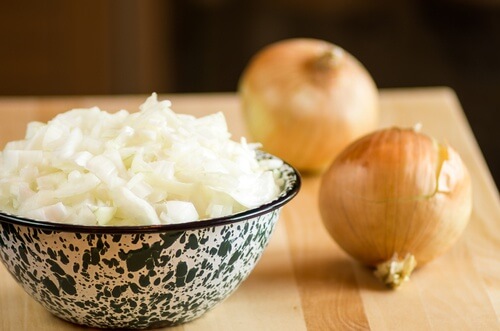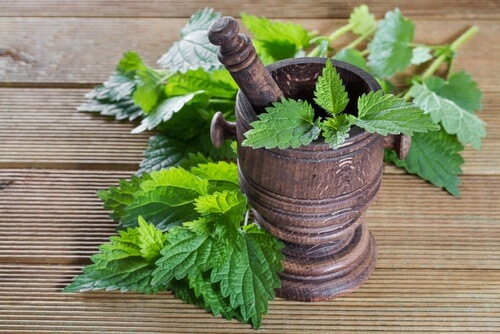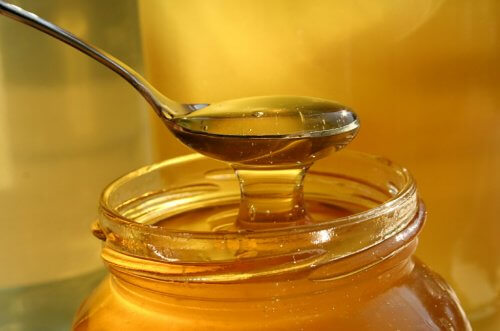How to Help Treat Bronchitis Naturally

Bronchitis, or an inflammation of the airways that lead to your lungs, is a very common problem in the winter. It can come from a viral infection or from abnormal mucus production. Smokers may also suffer from it in its chronic form. In this article, we share how to help treat bronchitis naturally.
What you need to know about bronchitis
Bronchitis is an inflammation or obstruction in the bronchial tubes caused by the same virus that causes coughs and colds, as well as fungus or bacteria.
Bronchitis is often a continuation of the common cold when it isn’t treated as it should be or when the person has a weakened immune system. If it doesn’t go away in time, it can lead to pneumonia, which can actually be fatal in some people.
Bronchitis can be acute (lasting a few weeks and caused by a virus or bacteria) or chronic (a result of continual irritation of the lungs, like in smokers or people in contact with contaminants).
The main symptoms of this condition are:
- Phlegm
- Dry cough.
- Itching in the throat.
- Noisy, difficult breathing.
- Fatigue and malaise.
- Chest pain and fever.
Home remedies for bronchitis

If you have some symptoms of this condition, it’s first a good idea to see a doctor.
Besides resting and following the advice of a professional, you may help treat your symptoms with certain natural recipes:
Eucalyptus oil
This oil has the ability to relieve headaches and clear your airways.
- Put a few drops of eucalyptus essential oil on a cloth and breathe it in a few times a day.
- It fights germs and helps eliminate a cough.
- You can also inhale eucalyptus steam.
- Heat a pot of water with a few drops of the oil.
- Breathe it in through your nose.
Onion soup

When you have the flu, you can take advantage of the antibacterial properties of onions. The same thing goes for bronchitis.
Ingredients
- 3 onions
- 1 clove
- 2 teaspoons of brown sugar (12 g)
- 1 piece of thyme
- 4 cups of water (1 liter)
- 1/2 cup of milk (125 ml)
Instructions
- Peel and slice the onions and add them to a pot.
- Add the clove, sugar, and thyme.
- Pour the water in until the ingredients are all covered.
- Simmer for 2 hours.
- Strain and let cool a bit.
- Heat the milk and put it in a cup.
- Pour in the onion broth, already strained, until the cup is filled.
- Drink as hot as possible.
- Repeat twice a day.
Garlic
Garlic is antibacterial and antiviral. It can help if you have bronchitis (especially if it’s chronic and caused by allergies) as it contains quercetin, a natural antihistamine).
Some people eat one raw garlic clove a day, first thing in the morning, and others opt for adding it to their food.
We recommend reading: Start Your Day Strong and Healthy with Lemon, Garlic and Honey
Hot tea may help treat bronchitis

When you’re sick, there’s nothing more comforting than a nice cup of hot tea or soup. They both have the ability to moisten your throat and this translates into less irritation, pain, and itching when coughing.
- Try ginger tea with honey, vegetable soup, or a hot cup of milk and honey before bed.
Gargling saltwater
It can be a bit painful, but the good news is that it soothes irritation in the throat and breaks down accumulated mucous. Therefore, your membranes and respiratory airways end up less irritated.
Ingredients
- 1 cup of water (250 ml)
- 1 teaspoon of salt (5 g)
Instructions
- Heat the cup of water and add the teaspoon of salt.
- Mix well.
- Once at a bearable temperature, gargle with the mixture, being careful not to swallow it.
- Repeat multiple times a day.
Nettle

This forest plant is good for so many things. For example, it may help treat asthma and allergies. It also may help people with acute bronchitis. It’s consumed in tea form and is very easy to make.
Ingredients
- 1 cup of water (250 ml)
- 2 tablespoons of dried nettle leaves (20 g)
- 1 tablespoon of honey (25 g)
Instructions
- Put the water in a pot and heat until boiling.
- Pour into a cup along with the nettle leaves.
- Cover and let sit for 15 minutes.
- Strain and sweeten with honey.
- Drink as hot as you can stand at least twice a day.
Almonds
These nuts are very nutritious (they contain calcium, potassium, magnesium, and more), and may help fight bacteria and germs that cause bronchitis.
You can have them in many different forms: chopped, in milk form, mixed with orange juice or hot milk, etc. We recommend grinding them so they don’t irritate your throat.
Take a look at this, too: Cleanse Your Bronchial Tubes Naturally
Honey flaxseed compress to help treat bronchitis

In addition to internal homemade remedies for bronchitis, we have other topical or external ones that can be quite helpful. This compress is a good example:
Ingredients
- 1 cup of water (250 ml)
- 1 cup of flaxseed flour (150 g)
- 2 tablespoons of honey (50 g)
Instructions
- Heat the water in a pot and then remove from heat.
- Add the flour little by little, constantly stirring, to form a dough.
- Add the honey and mix well.
- Put a spoonful or two into a clean, dry piece of gauze.
- Fold the ends of the cloth so that the contents don’t spill out.
- Apply directly to your chest and remove once it has cooled.
- Repeat several times a day.
All cited sources were thoroughly reviewed by our team to ensure their quality, reliability, currency, and validity. The bibliography of this article was considered reliable and of academic or scientific accuracy.
- Cermelli, C., Fabio, A., Fabio, G., & Quaglio, P. (2008). Effect of eucalyptus essential oil on respiratory bacteria and viruses. Current Microbiology, 56(1), 89–92. https://doi.org/10.1007/s00284-007-9045-0
- Sampath Kumar, K. P., Bhowmik, D., & Tiwari, P. (2010). Allium cepa: A traditional medicinal herb and its health benefits. J. Chem. Pharm. Res. J. Chem. Pharm. Res, 2(21), 283–291. https://doi.org/10.1016/j.porgcoat.2010.08.007
- Israili, Z. H. (2014). Antimicrobial properties of honey. American Journal of Therapeutics, 21(4), 304–323. https://doi.org/10.1097/MJT.0b013e318293b09b
- Chrubasik, J. E., Roufogalis, B. D., Wagner, H., & Chrubasik, S. A. (2007). A comprehensive review on nettle effect and efficacy profiles, Part I: Herba urticae. Phytomedicine, 14(6), 423–435. https://doi.org/10.1016/j.phymed.2007.03.004
- Bolling, B. W., Chen, C. Y. O., McKay, D. L., & Blumberg, J. B. (2011, December). Tree nut phytochemicals: Composition, antioxidant capacity, bioactivity, impact factors. A systematic review of almonds, Brazils, cashews, hazelnuts, macadamias, pecans, pine nuts, pistachios and walnuts. Nutrition Research Reviews. https://doi.org/10.1017/S095442241100014X
This text is provided for informational purposes only and does not replace consultation with a professional. If in doubt, consult your specialist.








